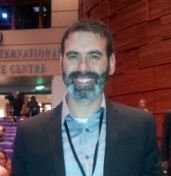
Gavin Fridell
Associate Professor, International Development Studies, Saint Mary's University, Nova Scotia
Associate Fellow
About Gavin Fridell
Gavin Fridell is a Canada Research Chair and Associate Professor in International Development Studies at Saint Mary’s University in Halifax, Canada. He is the author of Coffee (2014), Alternative Trade (2013), and Fair Trade Coffee (2007). He has written numerous articles on the political economy of trade, ethical trade, and global commodities.
Country(ies) or Region(s) of Specialization: Latin America and the Caribbean
Keywords: Coffee, fair trade, political economy, global commodities.
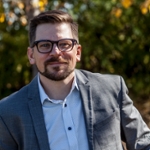
Simon Granovsky-Larsen
Assistant Professor, Department of Politics and International Studies, University of Regina
Associate Fellow
About Simon Granovsky-Larsen
His research concentrates on Guatemala’s post-conflict transition, especially in relation to ongoing political violence and the efforts of social movements to transform the country. His work is based on more than ten years of collaboration with grassroots groups and human rights defenders in Guatemala.
Country(ies) or Region(s) of Specialization: Guatemala
Keywords: Critical development studies, Latin American politics, Guatemala, Central America, social movements, political violence, post-conflict transitions, extractive industries
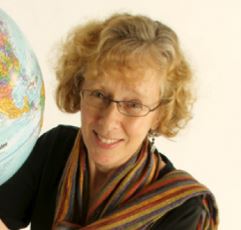
Sally Humphries
Associate Professor, Dept. of Sociology and Anthropology, University of Guelph
Associate Fellow
About Sally Humphries
My research, which is part and parcel of my applied development work, continues to be associated with Honduran farmer researchers and their supporting NGOs, in particular La Fundacion para la Investigacion Participativa con Agricultores de Honduras (FIPAH). Honduran farmer researchers have been engaged in generating new technologies, including new plant varieties produced through participatory plant breeding. By improving local landraces and better adapting them to the uncertainties of climate change, farmers have effectively increased local agro-biodiversity. At the same time, they have also acquired a strong sense of the value of biological conservation. Evaluations of the program, conducted by graduate students and myself, show that it has improved local livelihoods and wellbeing, most importantly through the provision of increased food security, as well as gender equality. My long term research interests are entirely participatory in nature, located within a theoretical framework of human and political ecology. In addition to long term research in Honduras, I have also worked with farmers in the highlands of Central Mexico and in the Yucatan peninsula, as well as supporting research, primarily through graduate students, in rural communities of southern India.
Country(ies) or Region(s) of Specialization: Honduras, Mexico, India
Keywords: Development, farming, climate change, agro-biodiversity

Laurie Jacklin
Assistant Professor (LTA), Department of History, Trent University in Oshawa
Associate Fellow
About Laurie Jacklin
Country(ies) or Region(s) of Specialization:
Keywords:
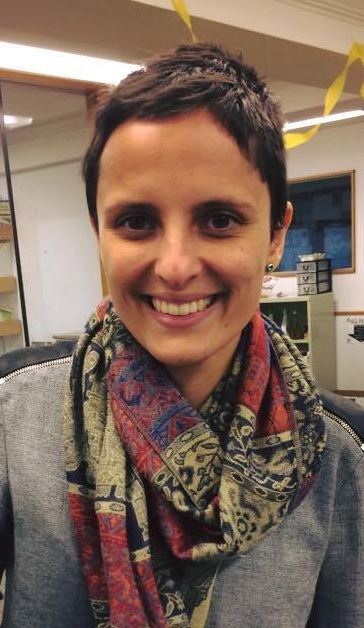
Adrienne Johnson
Assistant Professor, Faculty of Environmental Studies, University of San Francisco
Associate Fellow
About Adrienne Johnson
Broadly, my research analyzes the politics of industry-led environmental governance mechanisms in extractive resource sectors and traces the extent to which various local actors are (dis)enabled to participate in regulation activities associated with these mechanisms. My dissertation, Participatory Governance, Plant Disease, and Post-Neoliberalism, examined the uneven governing effects of the Roundtable on Sustainable Palm Oil (RSPO) in Ecuador and how palm oil production is structured by industry interests in addition to national politics, protest, and ecological realities. As a Social Sciences and Humanities Research Council (SSHRC) postdoc at York, I will continue my work in Ecuador while also initiating a new project that looks at the transforming regulatory landscape of mining in Northern Canada.
Country(ies) or Region(s) of Specialization: Ecuador, Canada
Keywords: environmental governance; political ecology; materiality; palm oil; post-neoliberalism
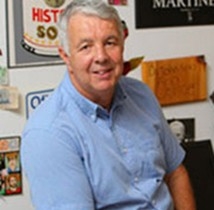
John Kirk
Professor, Department of Spanish and Latin American Studies, Dalhousie University
Associate Fellow
About John Kirk
John M. Kirk is a “jack of all trades, and a master of none.” He teaches a variety of language courses (Beginning Spanish and Translation), as well as others broadly defined as Latin American civilization. He has done most of his research in Cuba and Mexico, where he travels frequently. He has published several books on Cuban international relations, history and culture; as well as teaching about Cuba, Mexico and Central America. He has also worked as an interpreter for former Premier John Savage in meetings with President Fidel Castro, as well as with Aleida Guevara (daughter of Che), Adolfo Pérez Esquivel (Nobel Peace Prize laureate from Argentina), Chilean musical groups Inti Illimani and Quilapayún, and Mexican presidential candidate Cuauhtémoc Cárdenas.
He is currently working on a study of Cuban medical internationalism. Kirk helped to develop the sister-city relationship between Halifax and Campeche in Mexico, and directs the Dalhousie Study Abroad Program in Mexico.
Country(ies) or Region(s) of Specialization: Cuba, Mexico, Central America
Keywords: Cuban colonial times, Cuban cultural revolution, Latin American dictators, Spanish
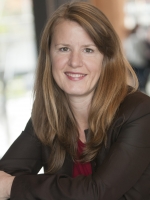
Sara Koopman
Assistant Professor, School of Peace and Conflict Studies, Kent State University
Associate Fellow
About Sara Koopman
Sara is a long time international solidarity activist and does collaborative thinking with those movements. Her focus is on colonial patterns in solidarity organizing, and how activists with privilege can and do work to change them. Her recent work is on international protective accompaniment in Colombia as an example of altergeopolitics. Her current research looks at how stories travel out of war zones and how they are used to build solidarity and peace. She blogs at decolonizingsolidarity.blogspot.com.
Country(ies) or Region(s) of Interest: Colombia
Keywords: Political geography, peace, feminist,. accompaniment, stories, solidarity

Lisa Kowalchuk
Associate Professor, College of Social and Applied Human Science, University of Guelph
Associate Fellow
About Lisa Kowalchuk
Lisa Kowalchuk received her B.A. in Sociology at McMaster University, her M.A. in Sociology from McGill University, and her Ph.D. in Sociology from York University. She taught for four years at St. Mary's University in Halifax before joining U of Guelph in July 2004. Her most recent research, funded by SSHRC, looks at the labour conditions of nurses in El Salvador and Nicaragua, and how these have been affected by the post-neoliberal turn in both of these countries' approaches to health-care policy. Her past projects have focused on social movements in El Salvador related to land reform and to neoliberal health-care restructuring. Issues of gender justice in the developing country context are another area of interest, and have been a theme of several courses she has taught.
Country(ies) or Region(s) of Specialization: El Salvador, Central America
Keywords: Social movements, collective action, collective resistance to neoliberal globalization in Central America, gender justice in the developing countries
